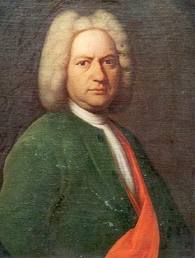Johann Sebastian Bach
German Composer (1685-1750)
Writings from Bach’s World by Jan Chiapusso, Indiana University Press, 1968
“Music held an essentially spiritual meaning for Bach; it was a medium for reaching the depths of the soul…During Bach’s school years, music was treated as one of the most important faculties within education. Luther had attributed a semi-magical quality to music, the power to convey ideas, to steer the will, to fortify faith. This evaluation of music can be traced back to Pythagoras and Plato, who considered musical training, ‘a more potent instrument than any other, because rhythm and harmony (melody, in the ancient sense) find their way into the inward places of the soul’…The art of music was not the work of man, but a ‘most wonderful and glorious gift of God, which had the power to drive out Satan and to resist temptations and evil thoughts.’”
“‘I give, after theology, music the nearest locum and highest honor,’ Luther wrote of his school curriculum. The word locus in medieval school language is equivalent to a division in the plan of learning, but Luther used the term in its ancient sense of place, or classroom. The far-reaching influence of this conception upon the subsequent development and the idealistic character of German music can hardly be underestimated. Without this vision of music as a spiritual power the world would never have known the genius of Bach and Beethoven.”



